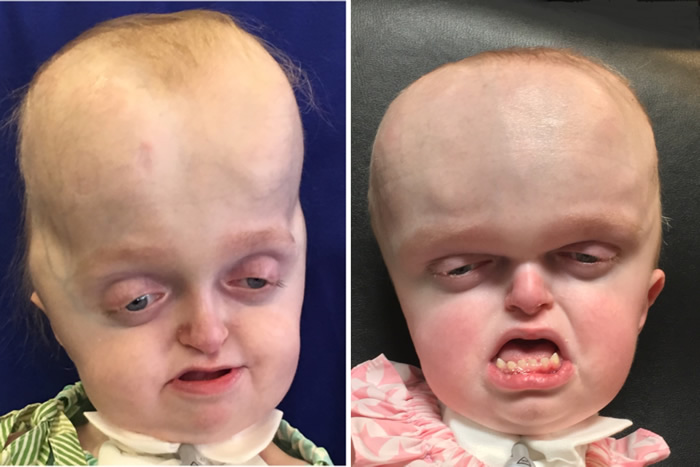Exploding Head Syndrome (EHS) is a perplexing and often unsettling sleep disorder that affects individuals worldwide. Despite its alarming name, EHS is not physically harmful, but its symptoms can be distressing and disruptive to sleep patterns. In this article, we delve into the intricacies of Exploding Head Syndrome, exploring its symptoms, causes, and potential treatment options.

What is Exploding Head Syndrome?
Exploding Head Syndrome is a parasomnia disorder characterized by the sensation of a sudden loud noise or explosion in the head during sleep transitions. These noises are typically described as resembling a gunshot, explosion, or crash, and they can occur as individuals are falling asleep or waking up. Despite the vivid auditory hallucinations, there is no actual sound present, and the episodes are not associated with any pain.
Symptoms of Exploding Head Syndrome
The primary symptom of Exploding Head Syndrome is the perception of loud, sudden noises that appear to originate from within the head. These noises can be accompanied by a flash of light or a sensation of electrical tingling. Individuals may experience fear, confusion, or anxiety following an episode, and they may have difficulty falling back asleep afterward. While the episodes themselves are typically brief, lasting only a few seconds, they can have a significant impact on sleep quality and overall well-being.
Causes of Exploding Head Syndrome
The exact cause of Exploding Head Syndrome remains unknown, jpslot but researchers believe it may be related to disturbances in the brain’s auditory processing mechanisms during sleep transitions. Some studies suggest that EHS may be linked to abnormalities in the brainstem or disruptions in neurotransmitter activity. Additionally, factors such as stress, fatigue, and sleep deprivation may increase the likelihood of experiencing EHS episodes.
Diagnosis and Treatment Options
Diagnosing Exploding Head Syndrome can be challenging due to its unusual nature and lack of definitive diagnostic tests. Healthcare providers typically rely on a thorough medical history and evaluation of symptoms to make a diagnosis. Treatment for EHS often focuses on managing stress and improving sleep hygiene practices. In some cases, medications such as tricyclic antidepressants or calcium channel blockers may be prescribed to alleviate symptoms.
Coping Strategies and Support
Living with Exploding Head Syndrome can be unsettling, but there are strategies individuals can use to cope with and manage the condition. Establishing a consistent sleep schedule, practicing relaxation techniques before bed, and reducing exposure to loud noises or bright lights can help minimize the frequency and intensity of EHS episodes. Seeking support from healthcare professionals, as well as connecting with others who have experienced similar symptoms, can also provide reassurance and guidance.
Conclusion: Shedding Light on a Puzzling Phenomenon
Exploding Head Syndrome remains a mysterious and poorly understood sleep disorder, but ongoing research efforts are shedding light on its underlying mechanisms and potential treatment approaches. By raising awareness of EHS and providing support and resources to affected individuals, we can work towards improving understanding, promoting better sleep health, and ultimately alleviating the distressing symptoms associated with this enigmatic condition.
Understanding the Pros and Cons of Exploding Head Syndrome: A Comprehensive Overview
Exploding Head Syndrome (EHS) is a peculiar sleep disorder that presents both advantages and disadvantages for individuals affected by it. In this article, we’ll explore the pros and cons of Exploding Head Syndrome, shedding light on its unique characteristics and the challenges it poses to those experiencing it.

Advantages of Exploding Head Syndrome:
- No Physical Harm: Despite its alarming name, Exploding Head Syndrome does not cause physical harm to individuals. The loud noises experienced during episodes are auditory hallucinations and do not result in any actual damage to the ears or brain.
- Non-Painful Sensations: While the auditory hallucinations associated with EHS can be startling, they are typically not accompanied by pain. This distinguishes EHS from other sleep disorders that may cause discomfort or physical discomfort.
- Increased Awareness: For some individuals, experiencing Exploding Head Syndrome may lead to increased awareness of their sleep patterns and overall sleep health. This heightened awareness may prompt them to seek medical evaluation and adopt healthier sleep habits.
Disadvantages of Exploding Head Syndrome:
- Sleep Disturbances: One of the primary disadvantages of Exploding Head Syndrome is the disruption it causes to sleep patterns. Episodes of EHS can occur during the transition between wakefulness and sleep, leading to sleep disturbances and difficulty falling asleep or staying asleep.
- Increased Anxiety: The sudden and unexpected nature of EHS episodes can provoke anxiety and fear in affected individuals. This anxiety may further exacerbate sleep disturbances and contribute to overall stress levels.
- Impact on Quality of Life: Chronic or frequent episodes of Exploding Head Syndrome can have a significant impact on an individual’s quality of life. Sleep disruptions may lead to daytime fatigue, irritability, and difficulty concentrating, affecting various aspects of daily functioning.
- Diagnostic Challenges: Diagnosing Exploding Head Syndrome can be challenging due to its unusual symptoms and lack of definitive diagnostic criteria. This can lead to delays in receiving appropriate medical evaluation and treatment.
Conclusion:
Exploding Head Syndrome presents both advantages and disadvantages for individuals affected by it. While it does not cause physical harm and may increase awareness of sleep health, it can also lead to sleep disturbances, anxiety, and reduced quality of life. Further research into the underlying mechanisms of EHS and improved diagnostic methods are needed to better understand and address this puzzling sleep disorder.
Can Exploding Head Syndrome Be Cured? Exploring Treatment Options
Exploding Head Syndrome (EHS) is a perplexing sleep disorder characterized by loud noises or explosions perceived within the head during sleep transitions. While EHS can be distressing and disruptive to sleep patterns, the question arises: can it be cured? In this article, we’ll delve into the treatment options and potential outcomes for individuals living with Exploding Head Syndrome.
Understanding Treatment Approaches
Currently, there is no known cure for Exploding Head Syndrome. However, various treatment approaches aim to manage symptoms, reduce the frequency and intensity of episodes, and improve overall sleep quality. These approaches may include:

- Stress Management: Stress and anxiety are thought to exacerbate EHS symptoms. Engaging in stress-reducing activities such as meditation, deep breathing exercises, or yoga may help alleviate symptoms and promote relaxation.
- Sleep Hygiene: Establishing a consistent sleep schedule, creating a relaxing bedtime routine, and optimizing sleep environment conditions can contribute to better sleep quality and reduce the likelihood of EHS episodes.
- Medication: In some cases, healthcare providers may prescribe medications to help manage symptoms of Exploding Head Syndrome. Tricyclic antidepressants, calcium channel blockers, and benzodiazepines are among the medications that may be considered, although their effectiveness in treating EHS varies.
- Cognitive Behavioral Therapy (CBT): CBT techniques, such as cognitive restructuring and relaxation training, may be beneficial for individuals experiencing anxiety or distress related to EHS. CBT aims to address maladaptive thought patterns and behaviors that contribute to sleep disturbances.
Seeking Professional Guidance
Individuals experiencing symptoms of Exploding Head Syndrome are encouraged to seek guidance from healthcare professionals specializing in sleep medicine or neurology. A thorough medical evaluation can help rule out underlying medical conditions and determine the most appropriate treatment plan based on individual needs and circumstances.
Managing Expectations
While treatment options for Exploding Head Syndrome can help manage symptoms and improve sleep quality, it’s essential to manage expectations regarding the possibility of a complete cure. Exploding Head Syndrome is a complex and poorly understood sleep disorder, and treatment outcomes may vary from person to person.
Conclusion
In conclusion, while there is currently no known cure for Exploding Head Syndrome, various treatment approaches can help manage symptoms and improve overall sleep health. By addressing stress, optimizing sleep hygiene practices, and seeking professional guidance, individuals living with EHS can take proactive steps towards managing their condition and enhancing their quality of life. Ongoing research efforts aimed at better understanding the underlying mechanisms of EHS may eventually lead to more effective treatment options in the future.
Read More Article About “Future of the Internet: Absolute top Transformation“




